「 Camping Products 」 June 07, 2024
When choosing a sleeping bag for outdoor use, there are several factors to consider to ensure you select the right one for your needs. Here are some key points to keep in mind:
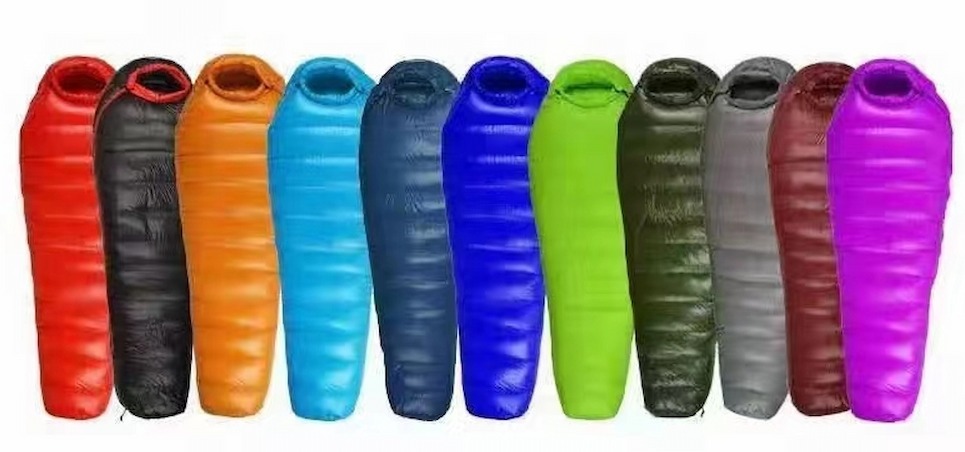
1. Temperature Rating: Sleeping bags often come with temperature ratings that indicate the lowest temperature at which the bag will keep you warm. Consider the average temperatures of the places you'll be camping and choose a bag that can handle those conditions. It's better to err on the side of choosing a bag rated for colder temperatures in case the weather is unexpectedly chilly.
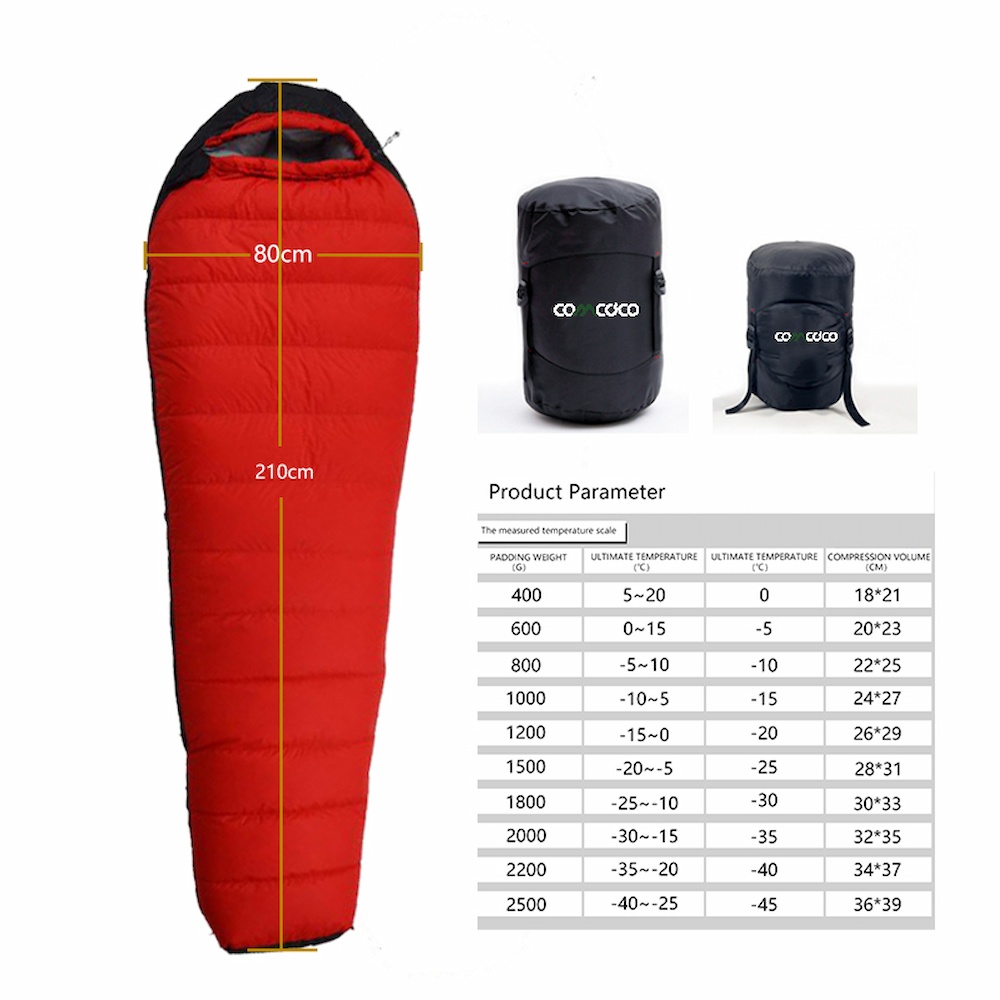
2. Insulation Type: Sleeping bags are typically insulated with either down or synthetic materials. Here are some characteristics of each:
Down Insulation: Down provides excellent warmth-to-weight ratio and compressibility, making it suitable for cold weather camping. It is more expensive and loses its insulating properties when wet.
Synthetic Insulation: Synthetic insulation is less expensive and retains insulation when wet, making it suitable for wet and humid conditions. It's also easier to care for and dries faster. Synthetic bags are generally bulkier and heavier than down bags with the same warmth rating.
3. Sleeping Bag Shape: Sleeping bags mostly come in two main shapes: Rectangular sleeping bag and Mummy sleeping bag.
Rectangular sleeping bags are suitable for car camping and less extreme conditions where weight and packability are not major concerns.
Mummy sleeping bags are have a tapered shape that closely follows the body shape, reducing dead spaces and maximizing warmth-to-weight ratio. They are lightweight and packable but can feel restrictive to some people.
4. Size and Fit: Make sure the sleeping bag is long and wide enough to comfortably accommodate your body size. Consider the length and shoulder/hip width measurements provided by the manufacturer. Some bags also come in different sizes, such as regular and long.
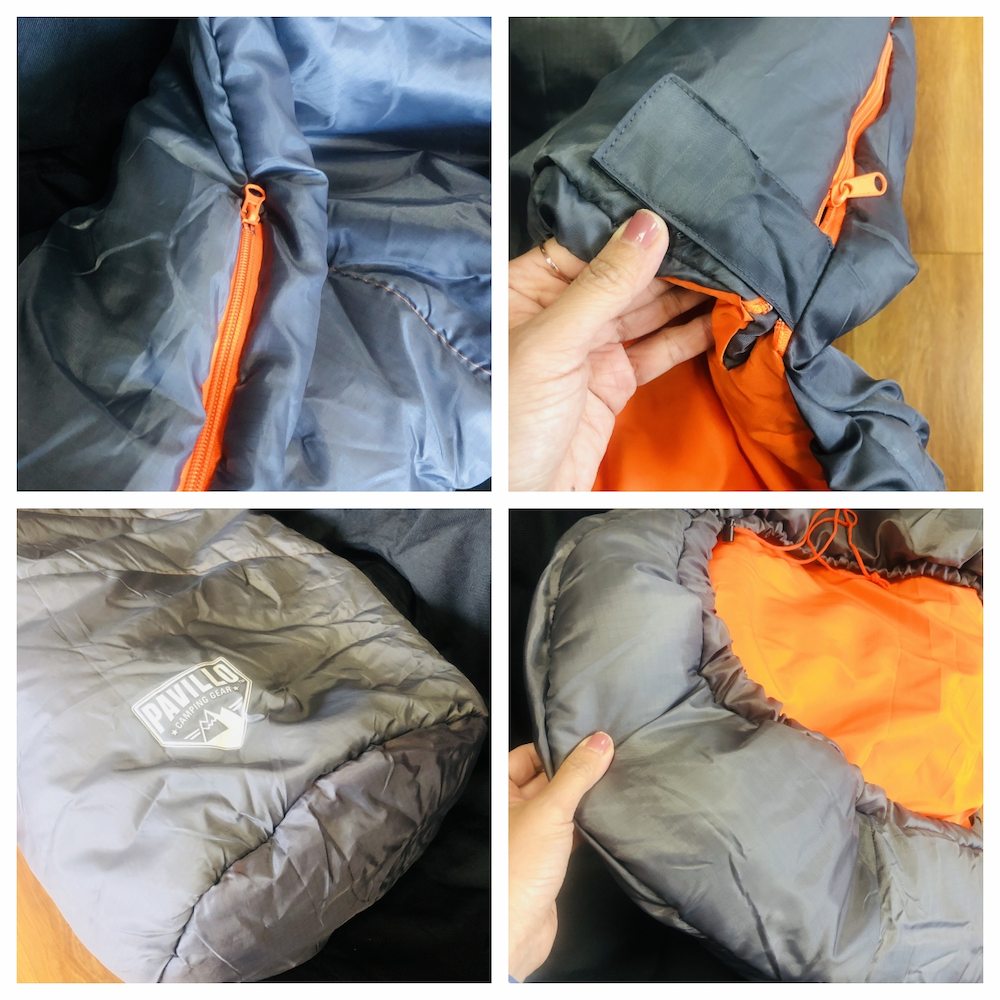
5. Weight and Packability: If you plan on backpacking or need a lightweight option, consider the weight and packed size of the sleeping bag. Down bags are generally lighter and more compressible than synthetic bags.
6. Additional Features: Pay attention to features like hood design, draft collar, zipper quality, inner pockets, and ventilation options. These can improve comfort and functionality while camping.
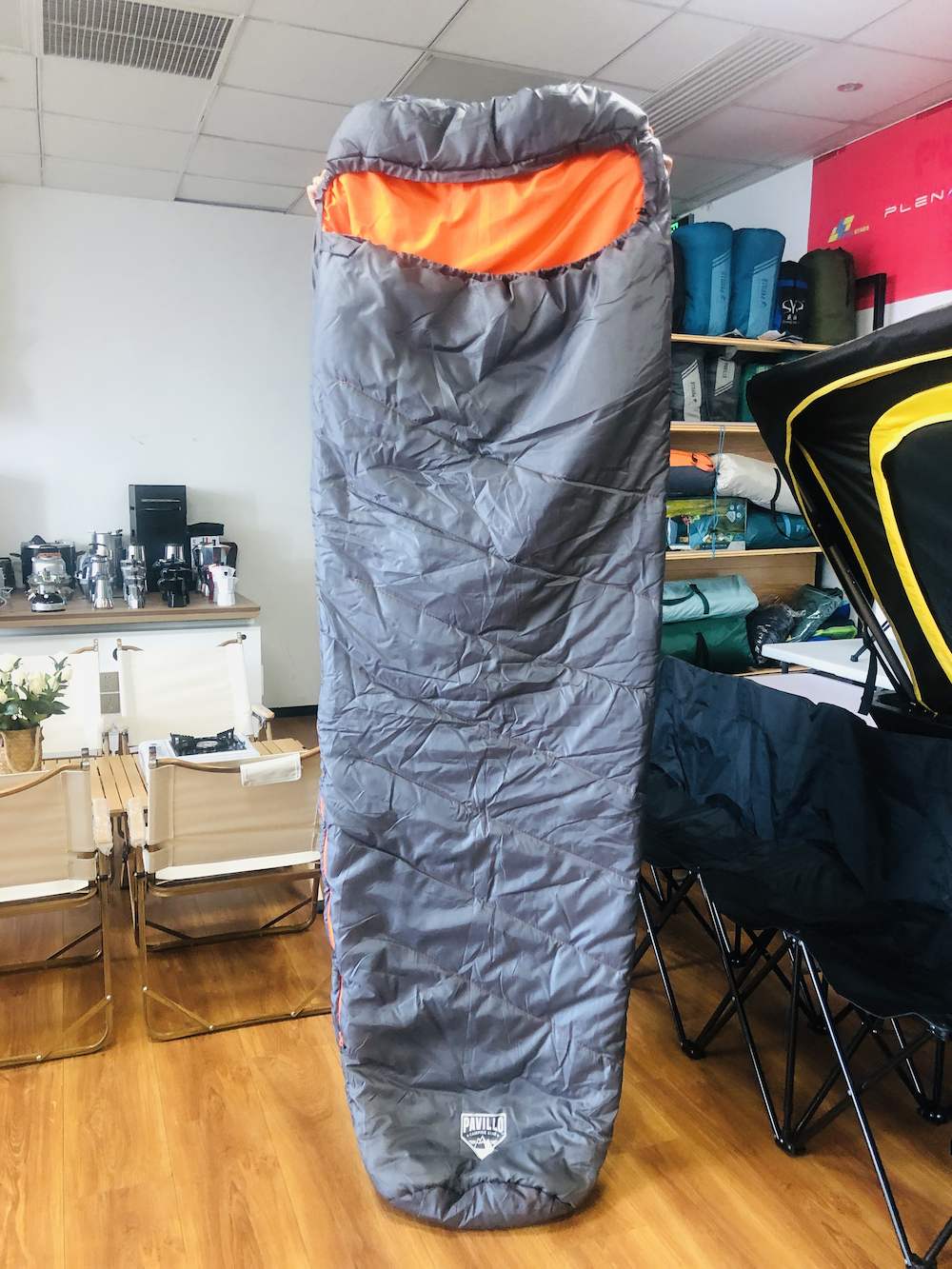
7. Budget: Have a budget in mind and look for sleeping bags within that range. Remember that high-quality bags with premium features may come at a higher cost, but they can offer better insulation and durability.
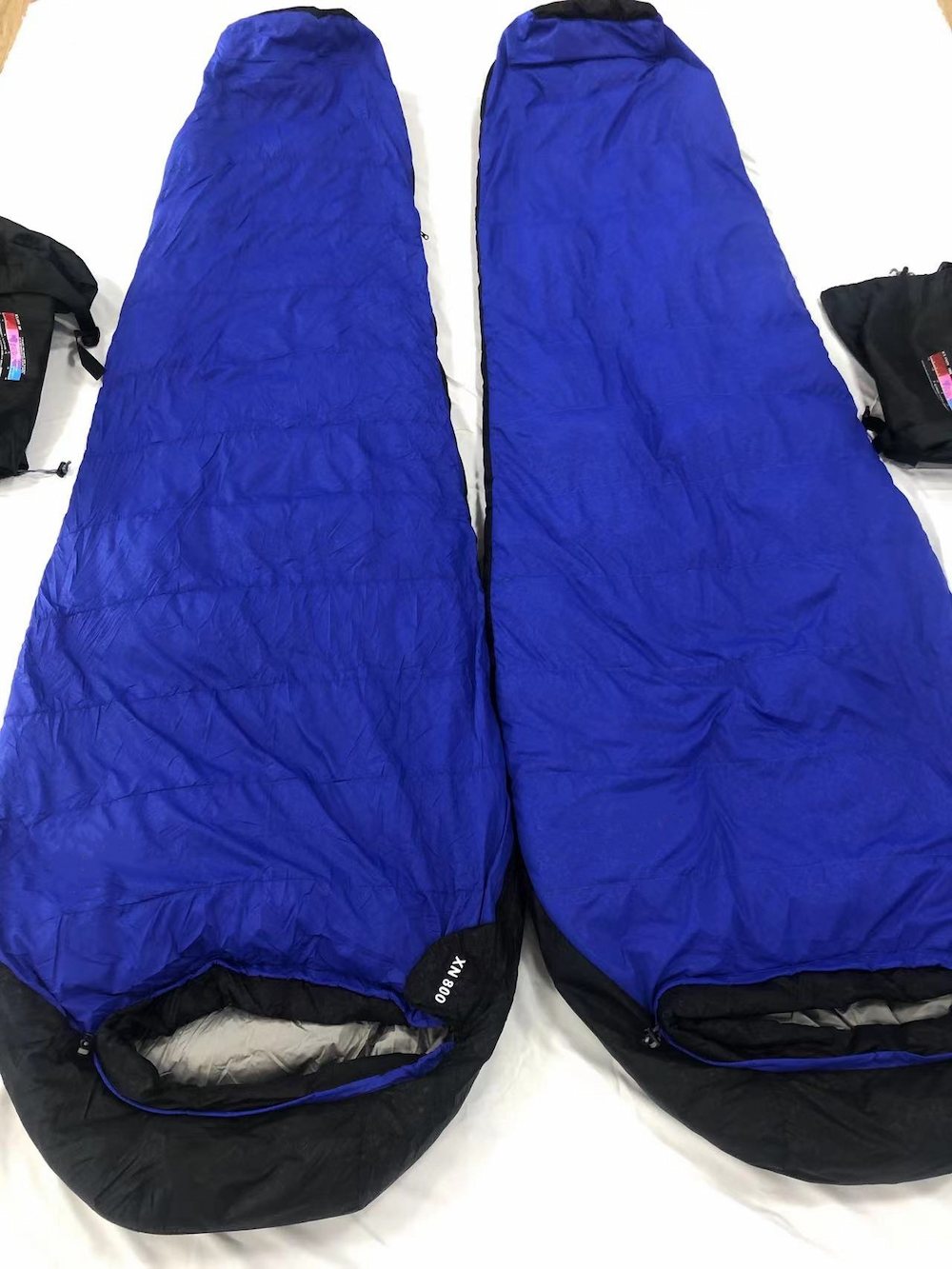
Before making a final decision, it's a good idea to read reviews, try out the sleeping bag if possible, and consider the specific requirements of your camping trips to ensure you choose a sleeping bag that best suits your needs.
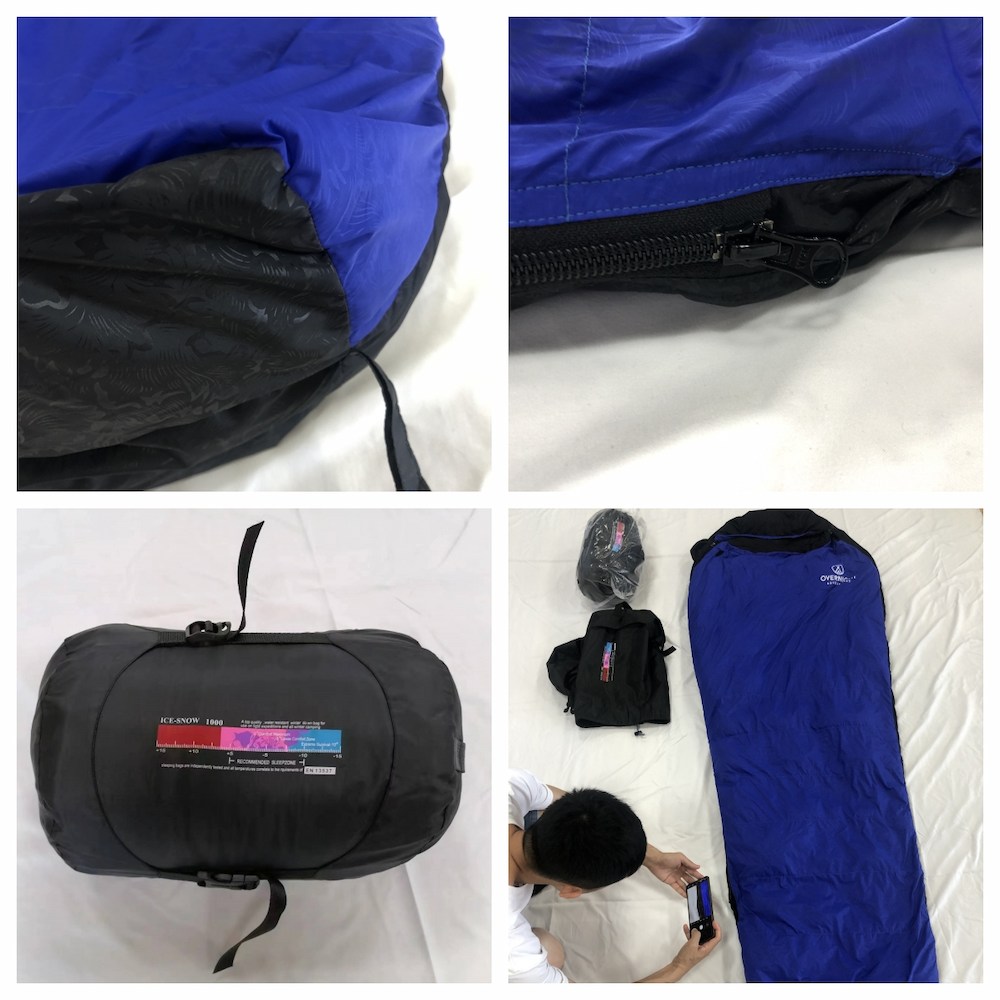
Our factory can customize the high-end lightweight sleeping bag for spring and for extremely cold whether, with your logo on bag& packing, also with the material you need such as the goose down sleeping bag, duck down sleeping bag, or economic cotton sleeping bag.
Warmly welcome your inquiry.